Special Report
Retailers Closing the Most Stores
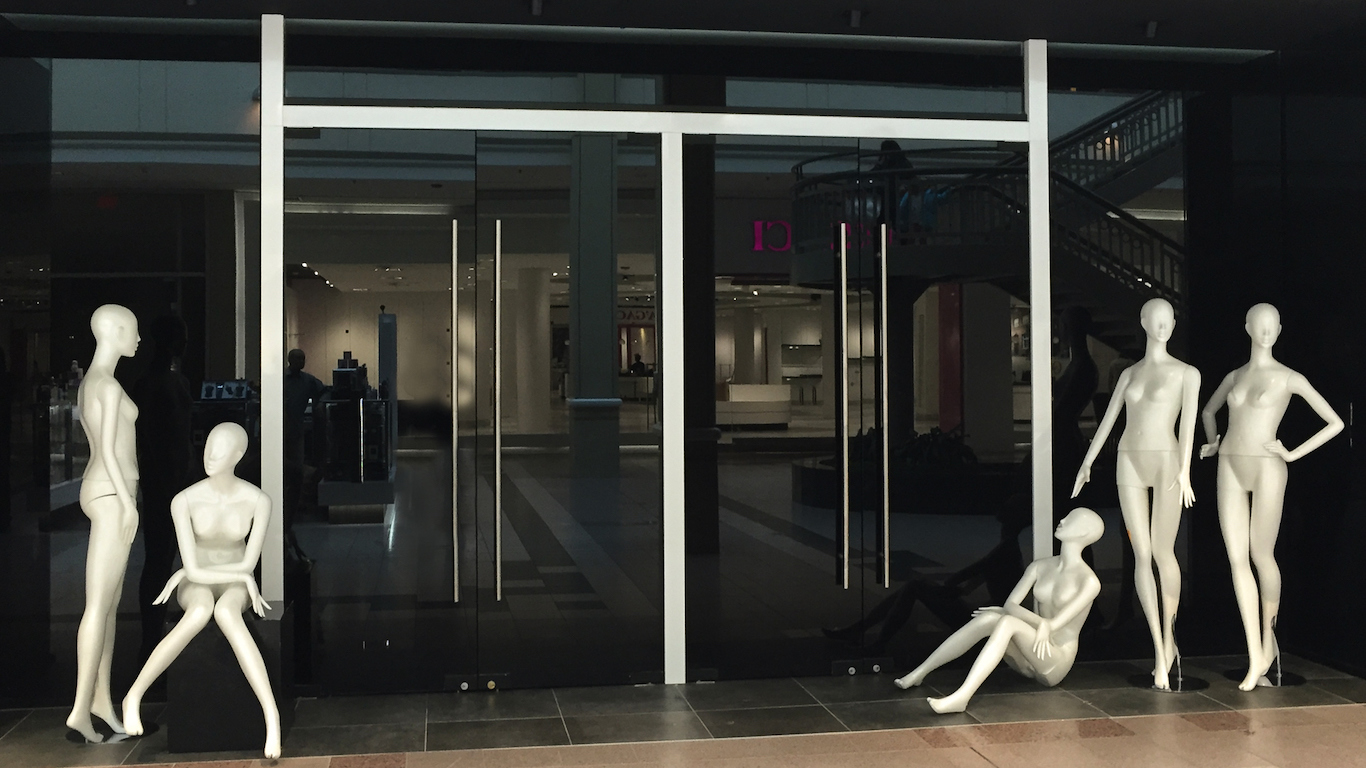
Published:
Last Updated:

U.S. store closures are accelerating in 2019 as online commerce reshapes the industry. Already closings this year have exceeded the total store closings last year, according to Coresight Research, a global research and advisory firm that tracks store openings and closings. Retailers have announced 5,994 store closures as of early April, according to Coresight Research, compared with 5,864 closings for all of 2018.
Many of the retailers announcing store closings are mall mainstays such as Payless ShoeSource and children’s retailer Gymboree. Both of those companies announced this year they are filing for bankruptcy and are closing all of their stores. Apparel chain Charlotte Russe, which also filed for bankruptcy this year, is also shuttering all of its locations.
Other chains, such as The Gap Inc. and L Brands, are also reducing their store counts. Though one of the Gap’s brands, Old Navy, is one of the most successful fashion brands in the country, the Gap brand itself is not doing as well and is closing stores. L Brands, parent of women’s intimate apparel company Victoria’s Secret, a popular brand among millennials, is also closing stores.
Paring stores and reducing a retail footprint can be a dangerous strategy for retailers. Sears Holdings, parent of the company that virtually defined retail in the 20th century, failed to adapt to the changing retail landscape and shuttered stores. The remaining stores have been plagued by empty shelves and poor customer service. Though these issues have tainted the brand, Sears is still not among the most hated companies in America.
The retrenchment of traditional retailers is showing no signs of abating, especially since many retail experts say the United States is still “overstored.”
Click here to see the retailers closing the most stores
To identify the companies closing the most stores, 24/7 Wall St. reviewed major U.S. retailers that have announced store closings for 2019. All listed store closings are based on company announcements of closures that will take place at least partially in 2019. Store counts represent the total number of stores worldwide, unless specific geography is noted, and the come from company annual reports and corporate websites. Store counts represent the most recent available figures and do not necessarily factor in closings. Store closing values are the number of stores closed or announced; it is not a net value that accounts for store openings. Only one parent company is listed for each retailer. In the case of companies who own multiple retail brands and do not specify which will close, we only listed their most well known brands.
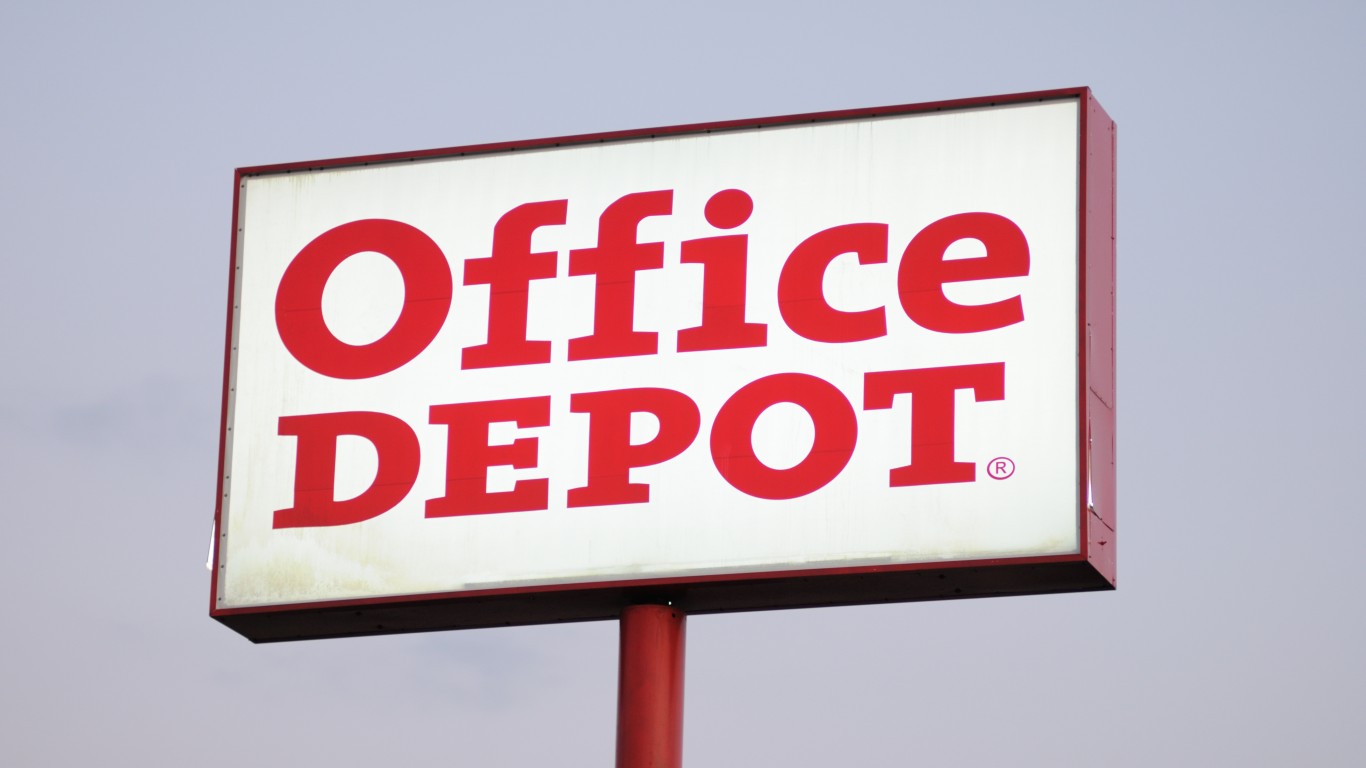
18. Office Depot Inc
> Planned closings: 50
> Brand(s) closing: Office Depot
> Store count: 1,361
> Annual profit: $104 million
The Boca Raton, Florida-based office supply company announced plans to shutter 50 stores in 2019 — after closing 19 stores in 2018 and 63 the previous year. In the third quarter of 2016, the company announced a plan to close 300 stores in North America over the next three years. The company has been forced to retrench because of competition from e-commerce titan Amazon.com, as well as the decline in the use of office and school supplies.
[in-text-ad]
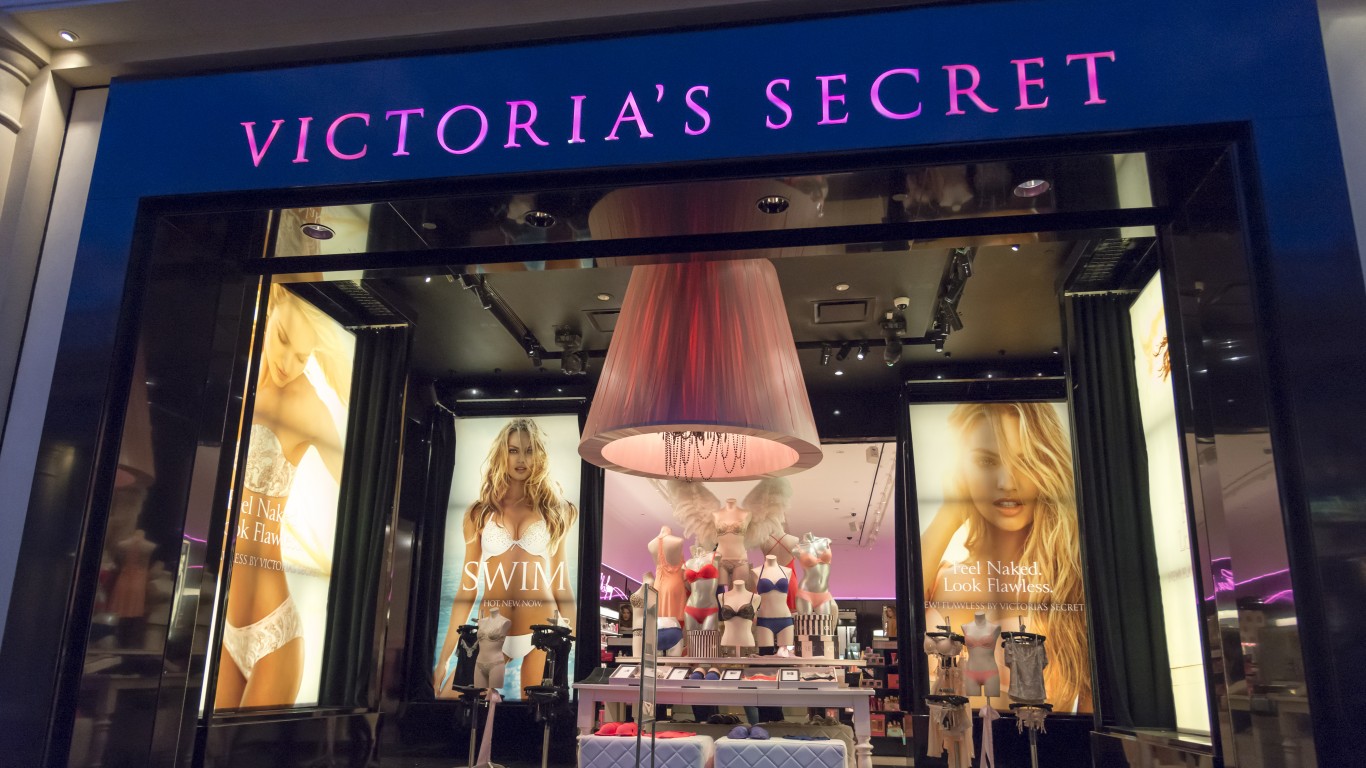
17. L Brands, Inc
> Planned closings: 53
> Brand(s) closing: Victoria’s Secret
> Store count: 3,617
> Annual profit: $644 million
L Brands, Inc., the Columbus, Ohio-based parent of Victoria’s Secret, plans to close 53 North American locations of the intimate women’s apparel chain. The announcement comes after 30 Victoria’s Secret stores were shuttered in 2018. Last year, the company also said it planned to close all of its Henri Bendel stores, an upscale women’s accessory brand. Victoria’s Secret, whose stores are located in malls and other retail centers, has been hurt by the decline in shopper traffic at brick-and-mortar establishments.

16. Advanced Sports Enterprises
> Planned closings: 102
> Brand(s) closing: Performance Bike, Bike Nashbar
> Store count: 102
> Annual profit: N/A
Performance Bicycle was once one of the nation’s largest bicycle chains. However, the chain’s Philadelphia, Pennsylvania-based parent Advanced Sports Enterprises filed for bankruptcy protection last November as the bicycle company was hurt by debt and the impact of rising costs tied to the ongoing international trade dispute. The company’s, whose bicycle retail division is based in Chapel Hill, North Carolina, plans to close 102 stores this year.

15. Signet Jewelers
> Planned closings: 150
> Brand(s) closing: Kay Jewelers, Zales, Jared, etc.
> Store count: 2,760
> Annual profit: -$657.4 million
Signet Jewelers, parent company of well-known brands like Kay Jewelers, Zales, and Jared, is another victim of the downturn in shopper traffic at malls and physical retail locations. The Bermuda-incorporated company that says it is the world’s largest retailer of diamond jewelry reported that in the 2019 fiscal year it closed 262 stores, most of which were in malls. Signet said it plans another 150 store closures in fiscal 2020. The company said in regulatory filings that it is “working toward a portfolio of fewer, better stores.”
[in-text-ad-2]
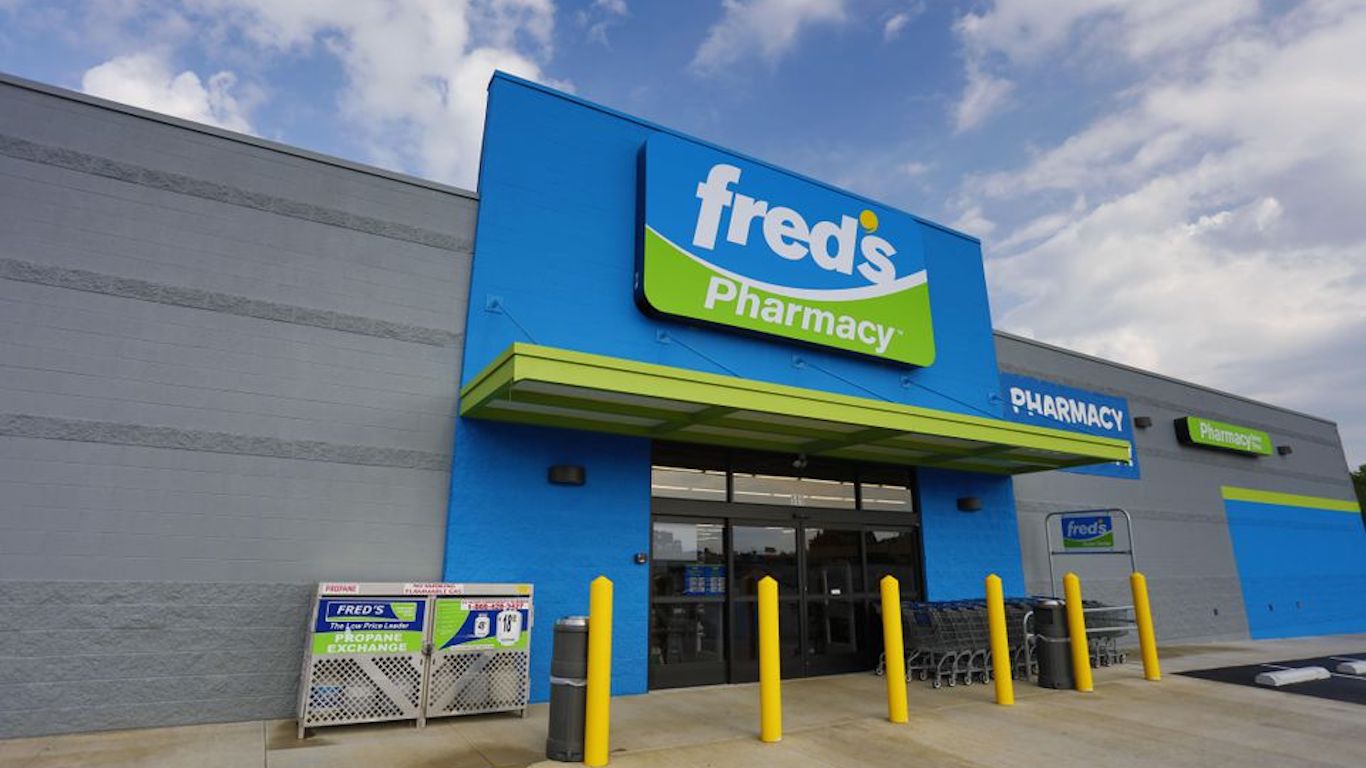
14. Fred’s Inc.
> Planned closings: 159
> Brand(s) closing: Fred’s
> Store count: 557
> Annual profit: $475.5 million
Discount chain Fred’s Inc. said on April 11 it will close 159 underperforming stores by the end of May as it looks to “evaluate strategic alternatives.” Joseph Anto, Fred’s CEO, said in a statement, “After a careful review, we have made the decision to rationalize our footprint by closing underperforming stores, with a particular focus on locations with shorter duration leases.” The planned closings represent about 29% of Fred’s store count. Memphis, Tennessee-based Fred’s operates stores in over a dozen Southeastern states. Most of the stores scheduled to close are in Georgia, Mississippi, and Tennessee.
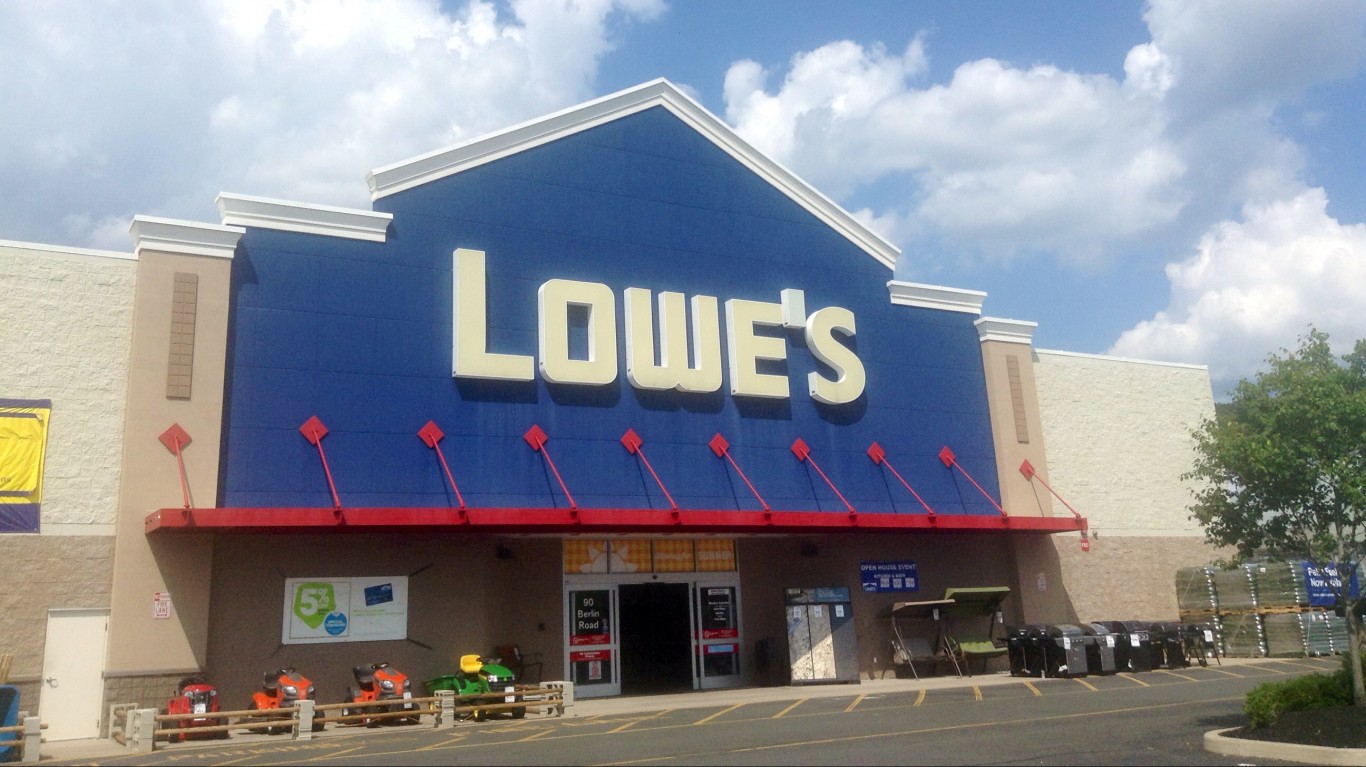
13. Lowe’s Companies Inc.
> Planned closings: 163
> Brand(s) closing: Lowe’s, Orchard Supply Hardware
> Store count: 2,015
> Annual profit: $2.3 billion
The home improvement company said in December that it will close 20 stores in the United States in 2019, 31 locations in Canada, and will leave the Mexican market entirely, shuttering all 13 locations in the country. The majority of the U.S. stores being closed are within 10 miles of another Lowe’s location. Mooresville, North Carolina-based Lowe’s also said last year that it was closing all 99 of its Orchard Supply Hardware stores, which are located in California, Oregon, and Florida.
[in-text-ad]
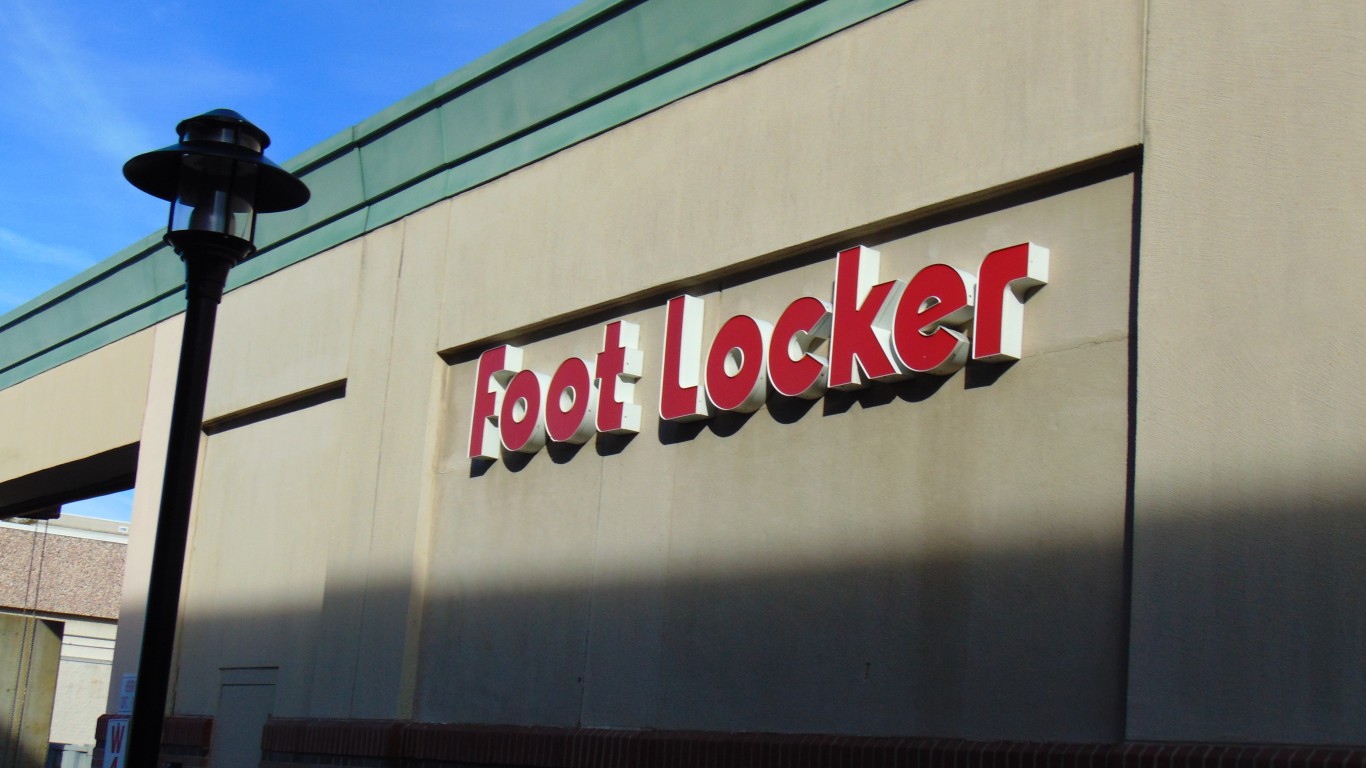
12. Foot Locker Inc.
> Planned closings: 165
> Brand(s) closing: Foot Locker
> Store count: 3,221
> Annual profit: $541 million
Foot Locker Inc. operates more than 3,000 stores worldwide under the following brands: Foot Locker, Kids Foot Locker, Lady Foot Locker, Champs Sports, Footaction, and SIX:02. In a recent regulatory filing, New York-based Foot Locker said sales declines may be attributed to the drop in foot traffic at malls, where many of its stores are located. Net income for Foot Locker for fiscal year 2018 climbed 90% to $541 million, from $284 million, the previous year.

11. LifeWay Christian Resources
> Planned closings: 170
> Brand(s) closing: LifeWay
> Store count: 170
> Annual profit: N/A
LifeWay Christian Resources is a Nashville, Tennessee-based Southern Baptist publishing company. In acknowledgment of the shift to e-commerce, the company said it will close all of its 170 brick-and-mortar stores in 2019. The company had previously announced it was cutting staff and was shifting to an online retail strategy, though it intended to keep the physical stores open to sell Bibles, books, and various faith-themed items.
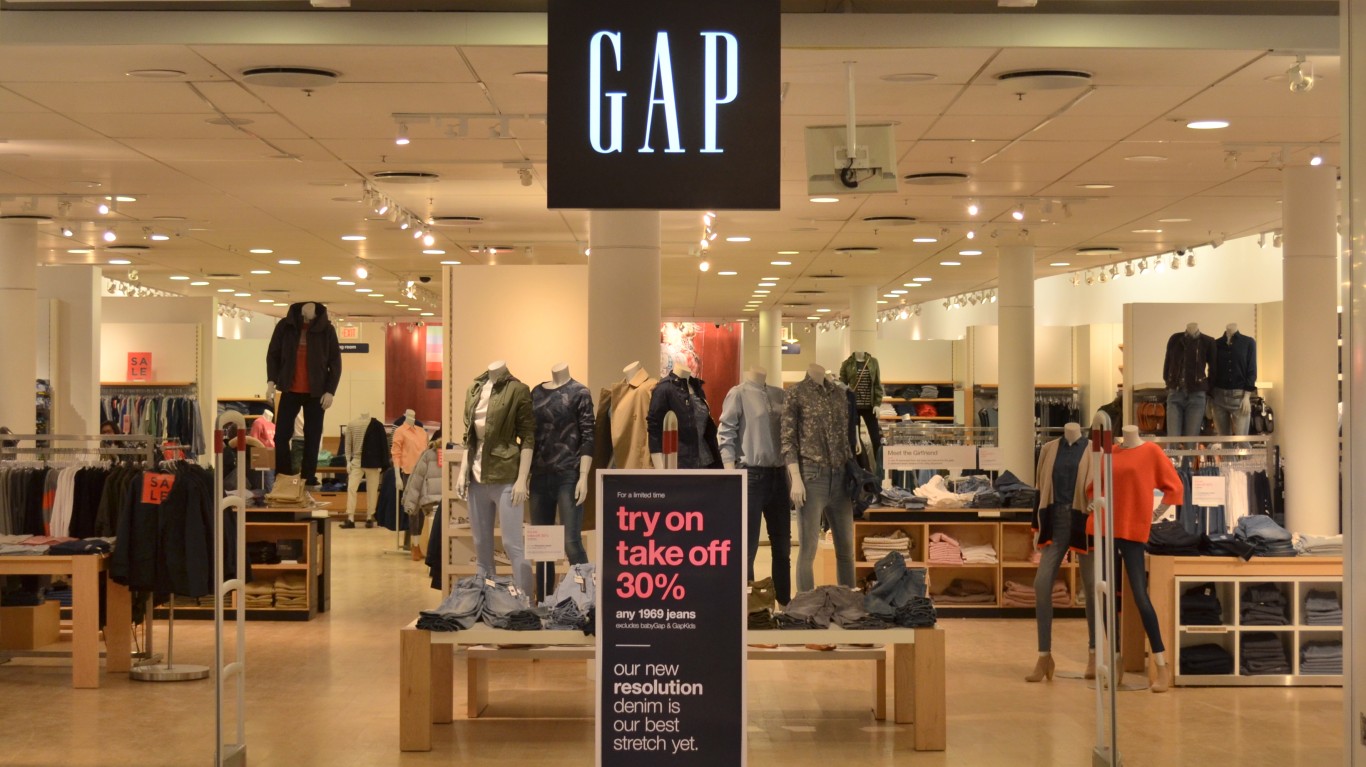
10. The Gap, Inc.
> Planned closings: 230
> Brand(s) closing: Gap
> Store count: 3,666
> Annual profit: $1.0 billion
Mall denizen The Gap, Inc. said in February it plans to close about 230 Gap brand stores during fiscal 2019 and fiscal 2020 in an effort to revitalize the brand. The San Francisco, California-based retailer said pre-tax costs associated with the store closures over the two-year period would amount to $250 million to $300 million. The Gap, Inc. sells apparel under the Old Navy, Gap, Banana Republic, Athleta, Intermix, and Hill City brands. The company reported net income of $1.0 billion in fiscal year 2018, up 18.3% from $848 million a year earlier.
[in-text-ad-2]
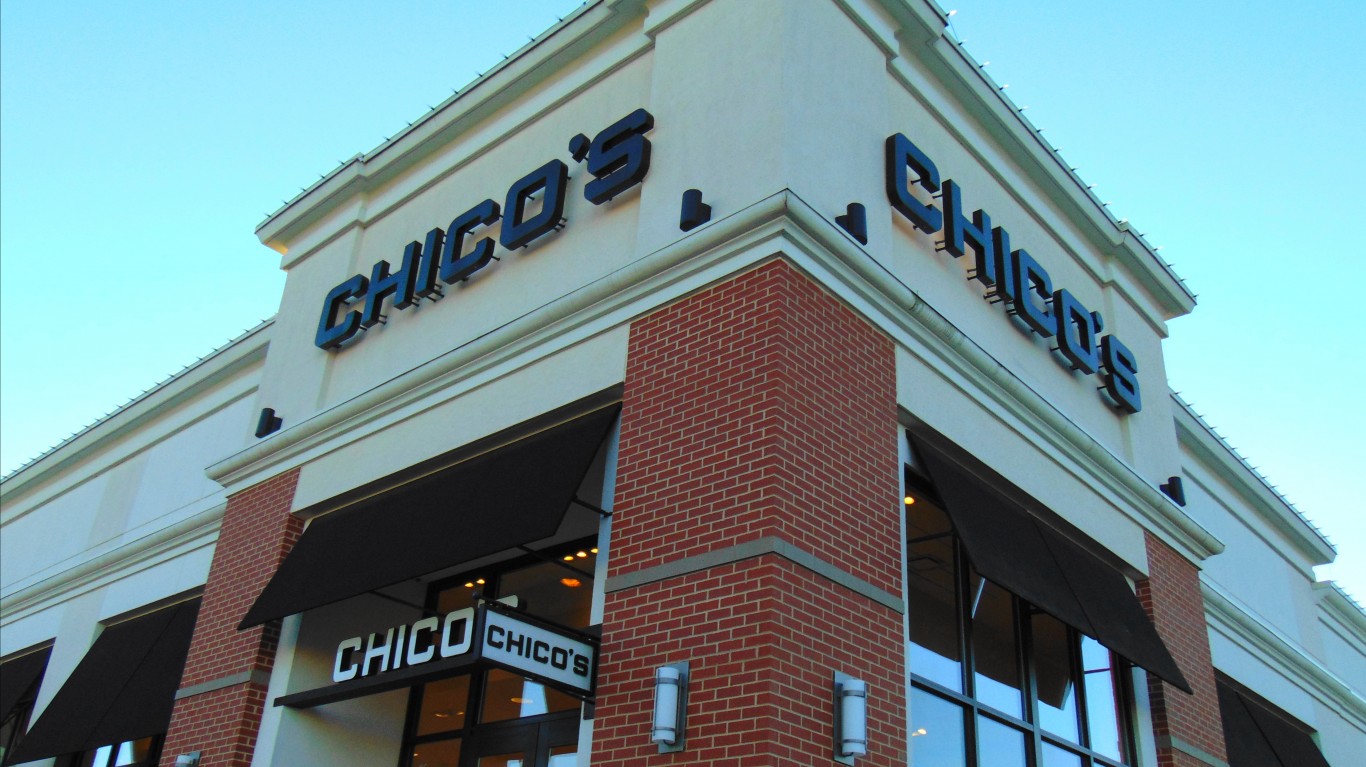
9. Chico’s FAS Inc
> Planned closings: ~250
> Brand(s) closing: Chico’s, White House Black Market, Soma
> Store count: 1,418
> Annual profit: $35.6 million
Women’s apparel chain Chico’s FAS Inc. said it will close at least 250 locations over the next three years. Closures will include locations of its namesake chain as well as stores at its other retail brands, White House Black Market and Soma. The company said in a press release in January that the decision to shutter these stores will allow the retailer to “take advantage of its lease expiration cadence, while improving profitability and return on invested capital.” The Fort Myers, Florida-based company said that for fiscal 2019, net sales slipped to $2.1 billion, a 6.6% drop from $2.3 billion in fiscal 2018.
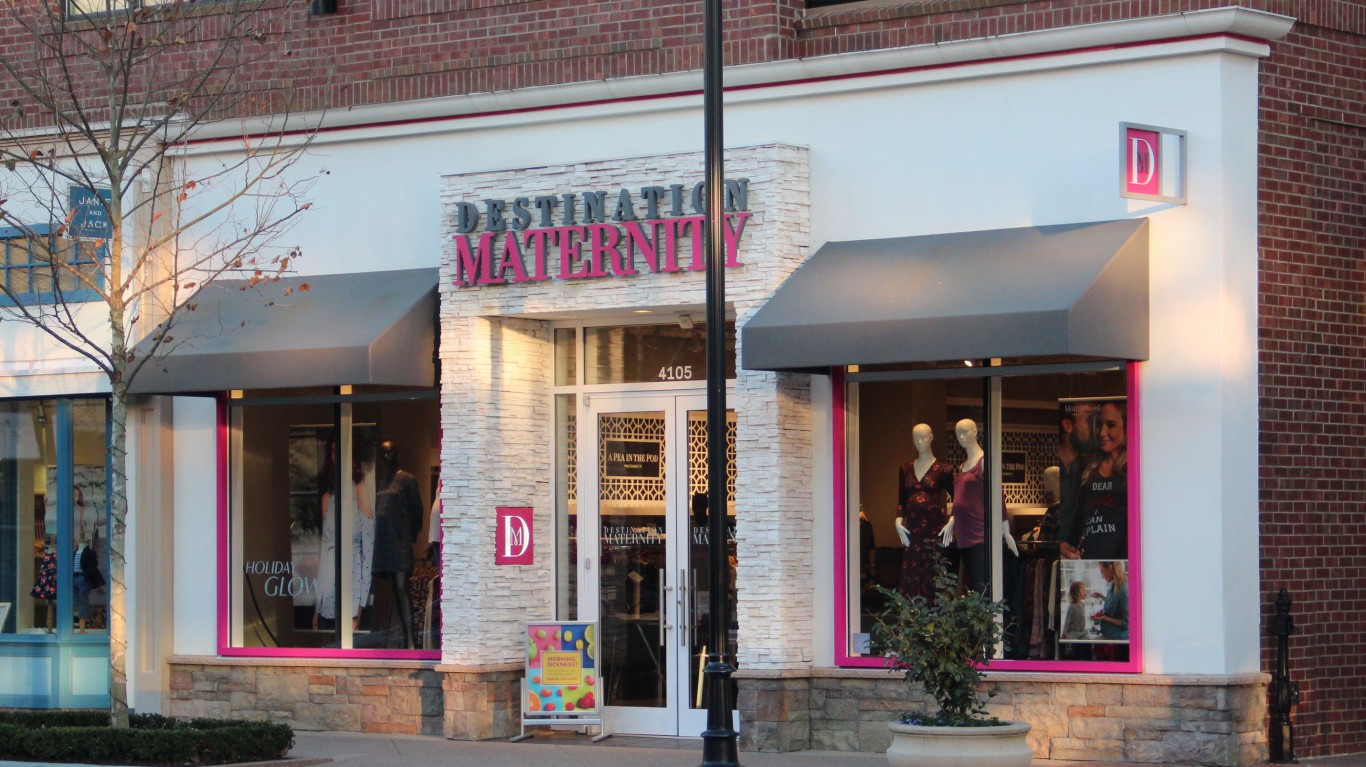
8. Destination Maternity
> Planned closings: 280
> Brand(s) closing: Destination Maternity
> Store count: 1,012
> Annual profit: $198.1 million
The maternity apparel retailer that operates in the United States, Canada, and Puerto Rico said in regulatory filings that it plans to close up to 67 stores in 2019 and as many as 280 into 2022. Destination Maternity CEO Marla Ryan said in published reports that the Moorestown, New Jersey-based retailer plans to test smaller format stores to try and boost productivity. Ryan became chief executive in May 2018 and is the fourth CEO at Destination Maternity in the last year.
[in-text-ad]
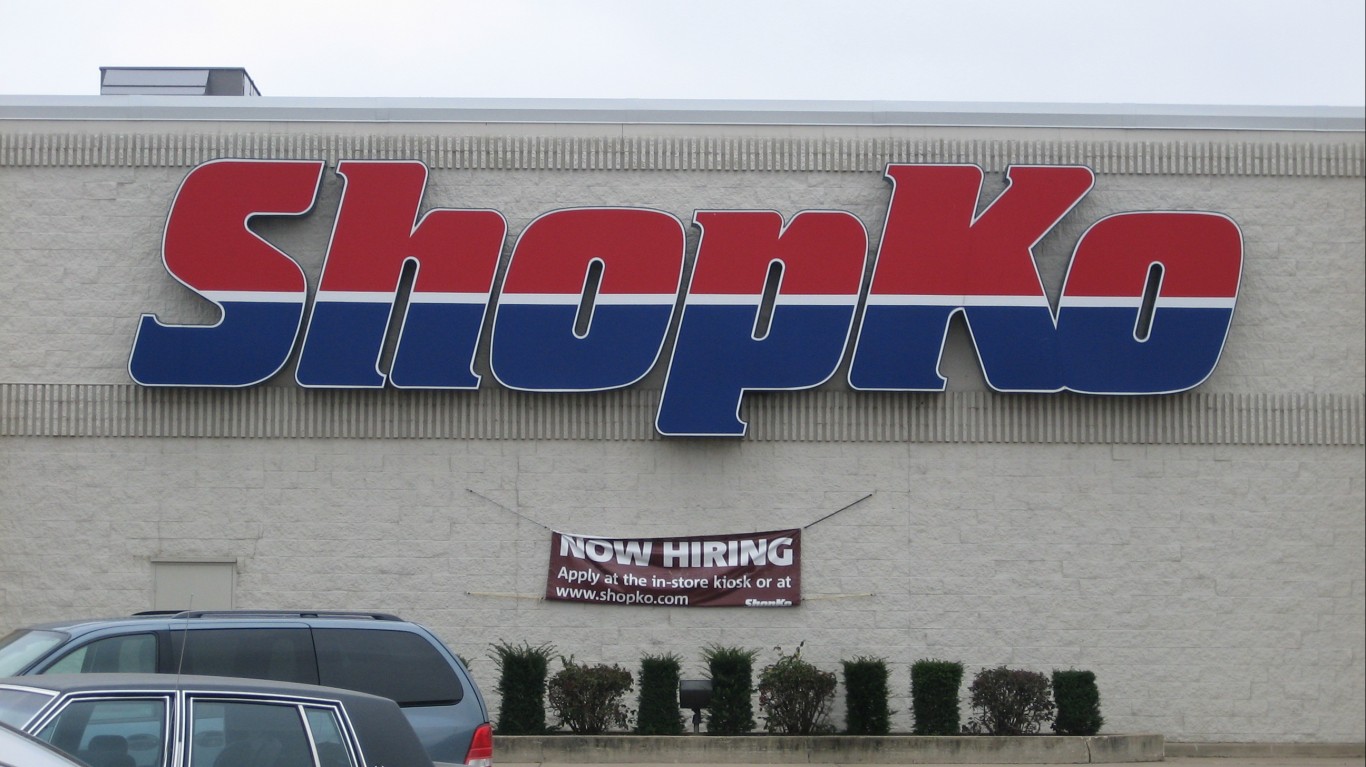
7. Shopko
> Planned closings: 363
> Brand(s) closing: Shopko
> Store count: 363
> Annual profit: N/A
Midwestern general merchandise chain Shopko said in March it is closing what is left of its 363 stores after it failed to find a buyer. The chain filed for bankruptcy in January and shuttered about 100 locations at the time. The retailer, headquartered in Green Bay, Wisconsin, was founded in 1962, went public in 1991, and was bought by private equity firm Sun Capital Partners bought Shopko for $1.1 billion in 2005.
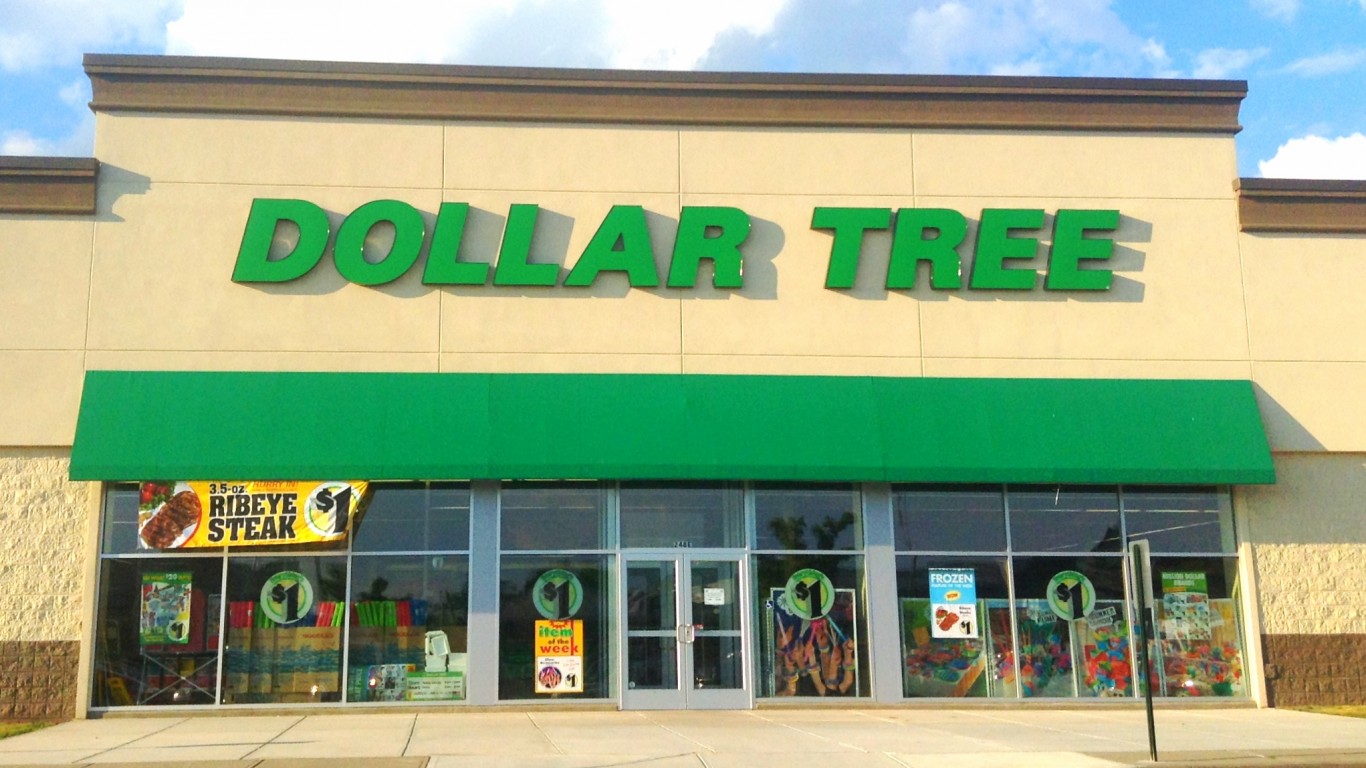
6. Dollar Tree Inc.
> Planned closings: 390
> Brand(s) closing: Family Dollar
> Store count: 15,237
> Annual profit: -$1.6 billion
Even dollar stores such as Family Dollar, parent Dollar Tree Inc., are feeling the pain of the retail Armageddon. In March, the Chesapeake, Virginia-based chain announced plans to close 390 Family Dollar stores in what it called “a store optimization program.” The plan includes a rollout of a new store model for new and renovated Family Dollar stores for fiscal 2019. Dollar Tree Inc. operates 15,237 stores in 48 states and Canada. For the fiscal year ended Feb. 2, 2019, the company posted a loss of $1.6 billion, compared with net income of $1.7 billion in the fiscal year ended Feb. 3, 2018.
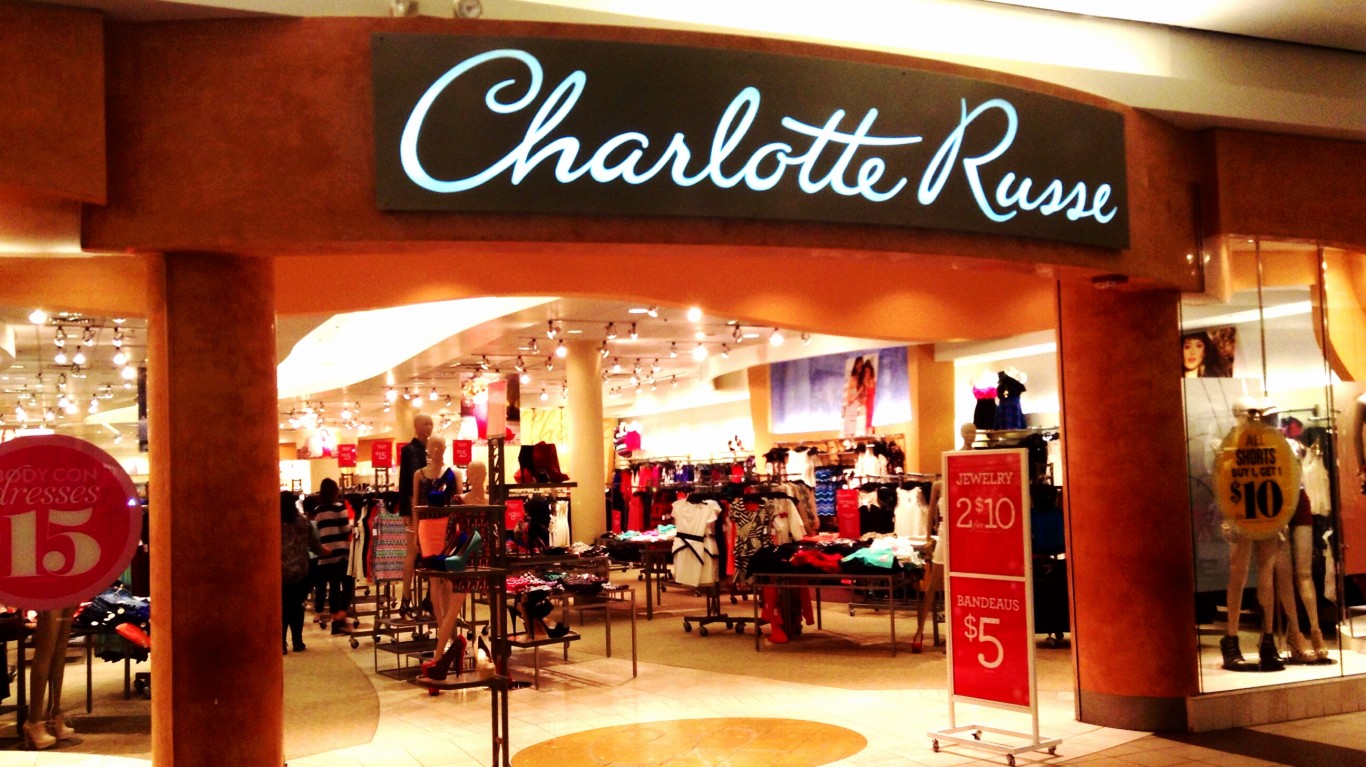
5. SB360 Capital Partners
> Planned closings: 416
> Brand(s) closing: Charlotte Russe
> Store count: N/A
> Annual profit: N/A
Liquidation company SB360 Capital Partners, bought Charlotte Russe from Advent International, to sell off the troubled retailers remaining assets. In a March statement, SB360 confirmed it would be closing all 416 of the women’s apparel retail locations. Charlotte Russe originally filed for bankruptcy protection in February, and at the time said it would close 94 stores. It also put itself up for sale but failed to find a buyer. SB360 Capital Partners is an affiliate of the Schottenstein family, who also own DSW Inc. and American Eagle Outfitters.
[in-text-ad-2]
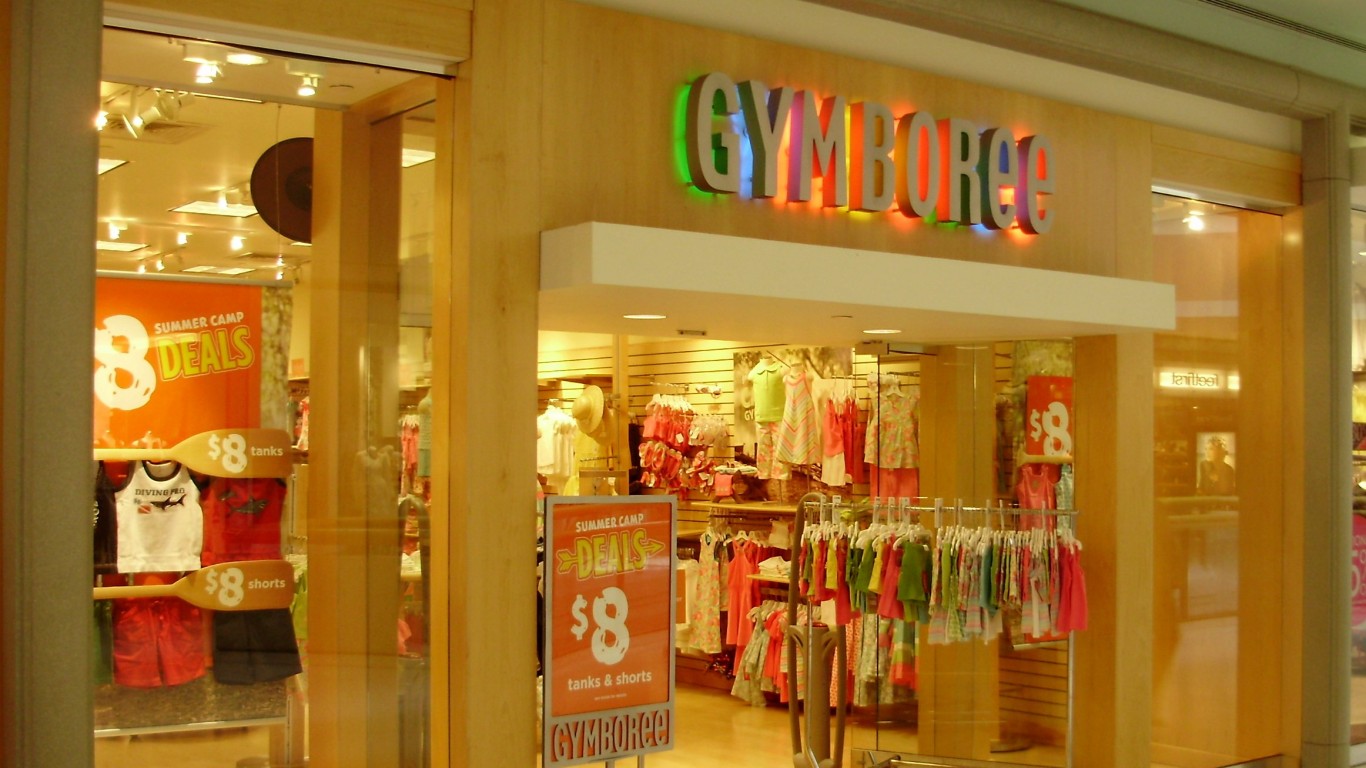
4. Bain Capital
> Planned closings: 805
> Brand(s) closing: Gymboree, Crazy 8
> Store count: N/A
> Annual profit: $99.3 million
Children’s clothing retailer Gymboree, owned by private equity firm Bain Capital, filed for bankruptcy protection for the second time in less than two years in January and announced plans to close all locations. Gymboree, found in America’s malls, first filed for bankruptcy protection in June 2017 after it was unable to pay down $1.4 billion in debt accrued after it was purchased by Bain Capital in a leveraged buyout in 2010. It emerged from bankruptcy protection in October 2017 and as part of the reorganization plan, the company liquidated 375 underperforming stores.
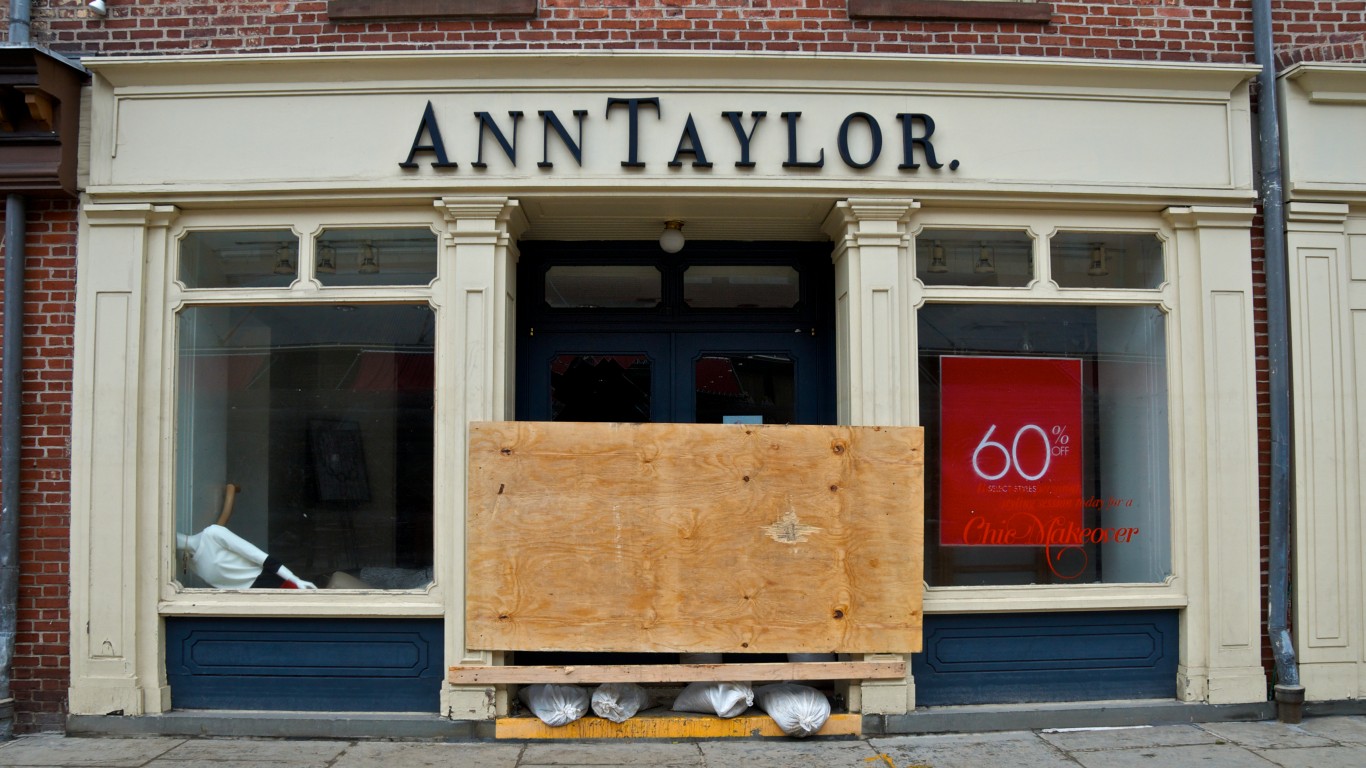
3. Ascena Retail Group
> Planned closings: 864
> Brand(s) closing: Justice, Dressbarn, Ann Taylor, etc.
> Store count: 4,622
> Annual profit: $34.3 million
Ascena Retail Group — owner of the brands Ann Taylor, LOFT, Maurices, Dressbarn, Lane Bryant, Catherines, and Justice — is paring stores and is weighing the sale of some of its brands. The 864 planned store closures are a part of the company’s “fleet optimization program,” launched in January 2017. As of July 2018, 256 of locations had already been shuttered.
Ascena agreed in late March to sell a majority interest in its Maurices brand to private equity firm OpCapita for about $300 million. Mahwah, New Jersey-based Ascena also is shopping around Dressbarn, which is competing with rivals like H&M and Zara that are gaining younger shoppers. Ascena’s shares have plunged to about $1.00 a share from a 52-week high of $5.29 on Aug. 22.
[in-text-ad]
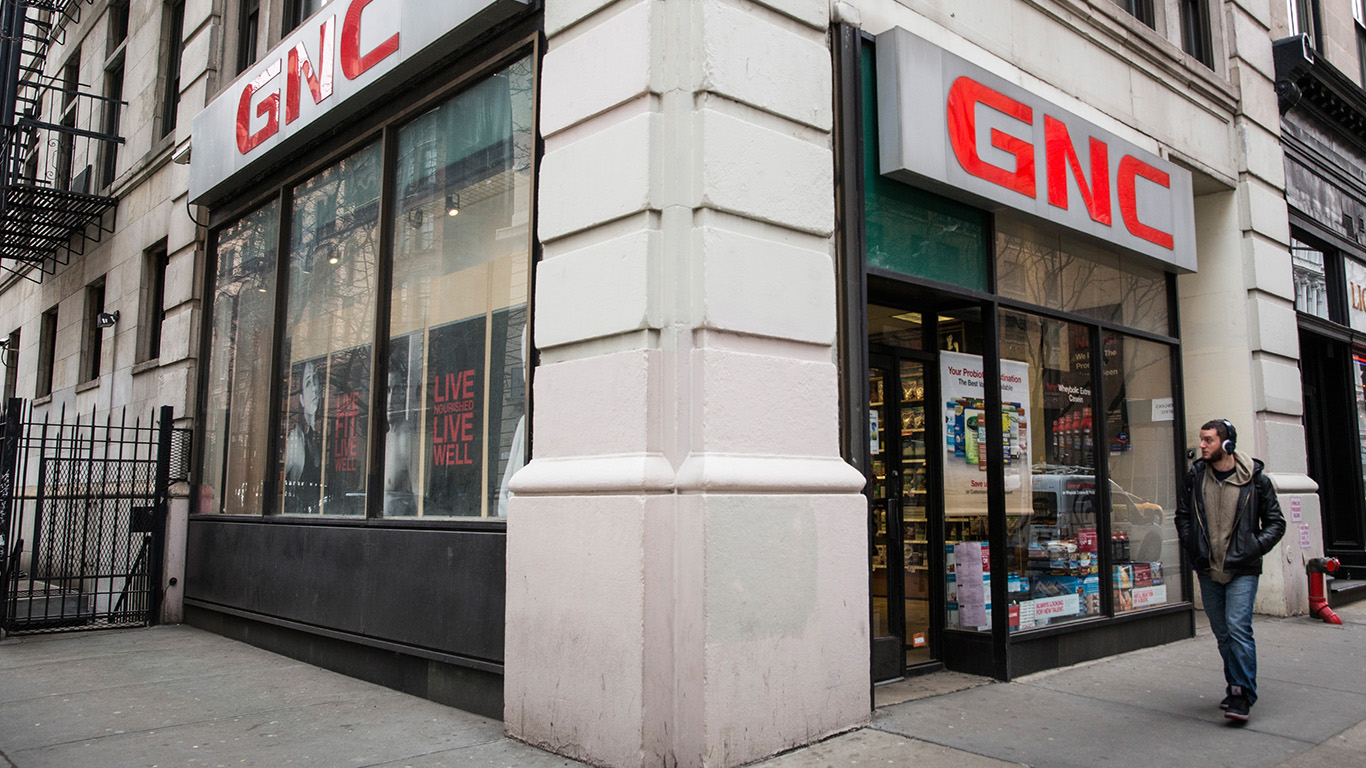
2. GNC Holdings Inc
> Planned closings: 700-900
> Brand(s) closing: GNC
> Store count: 8,383
> Annual profit: $69.8 million
GNC Holdings Inc., a vitamin and supplement retailer, is looking to grow in China and is receiving payments totaling $300 million from Chinese pharmaceutical giant Harbin Pharmaceutical Group, Ltd. to expand in the world’s most populous nation. Even so, the Pittsburgh, Pennsylvania-based retailer intends to shutter up to 900 stores in the United States and Canada over the next three years as leases expire. The company swung to a profit of $69.8 million in 2018, after posting a loss of $150.3 million the previous year.
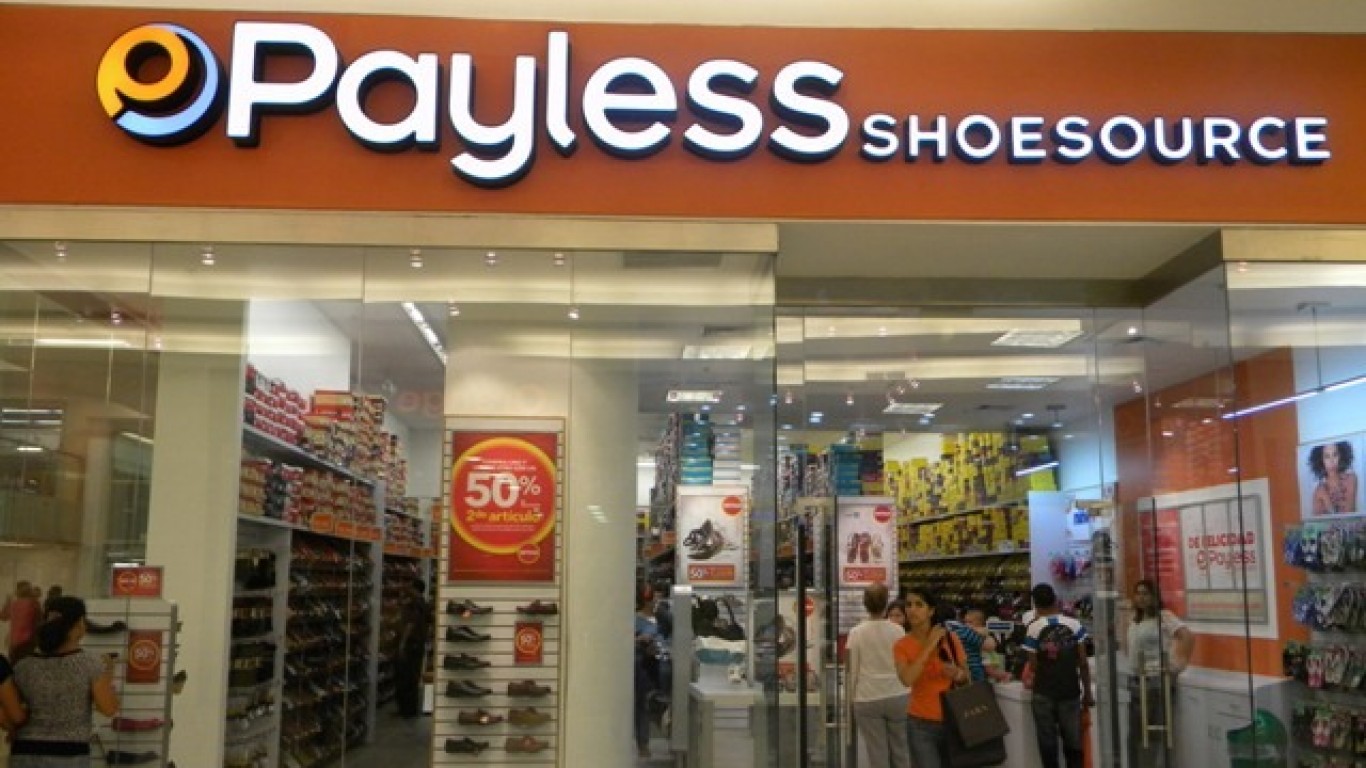
1. Payless Finance, Inc.
> Planned closings: 2,500
> Brand(s) closing: Payless ShoeSource
> Store count: N/A
> Annual profit: N/A
Payless ShoeSource Inc., the Topeka, Kansas-based shoe retailer operated by Blum Capital and Golden Gate Capital, became a casualty of the new retail reality and filed for bankruptcy protection in February. Stephen Marotta, appointed as chief restructuring officer of Payless in January 2019, said in a press release announcing the bankruptcy filing, “The challenges facing retailers today are well documented, and unfortunately Payless emerged from its prior reorganization ill-equipped to survive in today’s retail environment.” The 62-year-old company began liquidation sales at its stores in the United States and Canada in March and plans to close all stores by late May.
There are several hundred Payless brand stores across Latin America, Asia, and Africa that operate as separate legal entities and are not included in the bankruptcy filings.
Start by taking a quick retirement quiz from SmartAsset that will match you with up to 3 financial advisors that serve your area and beyond in 5 minutes, or less.
Each advisor has been vetted by SmartAsset and is held to a fiduciary standard to act in your best interests.
Here’s how it works:
1. Answer SmartAsset advisor match quiz
2. Review your pre-screened matches at your leisure. Check out the advisors’ profiles.
3. Speak with advisors at no cost to you. Have an introductory call on the phone or introduction in person and choose whom to work with in the future
Thank you for reading! Have some feedback for us?
Contact the 24/7 Wall St. editorial team.